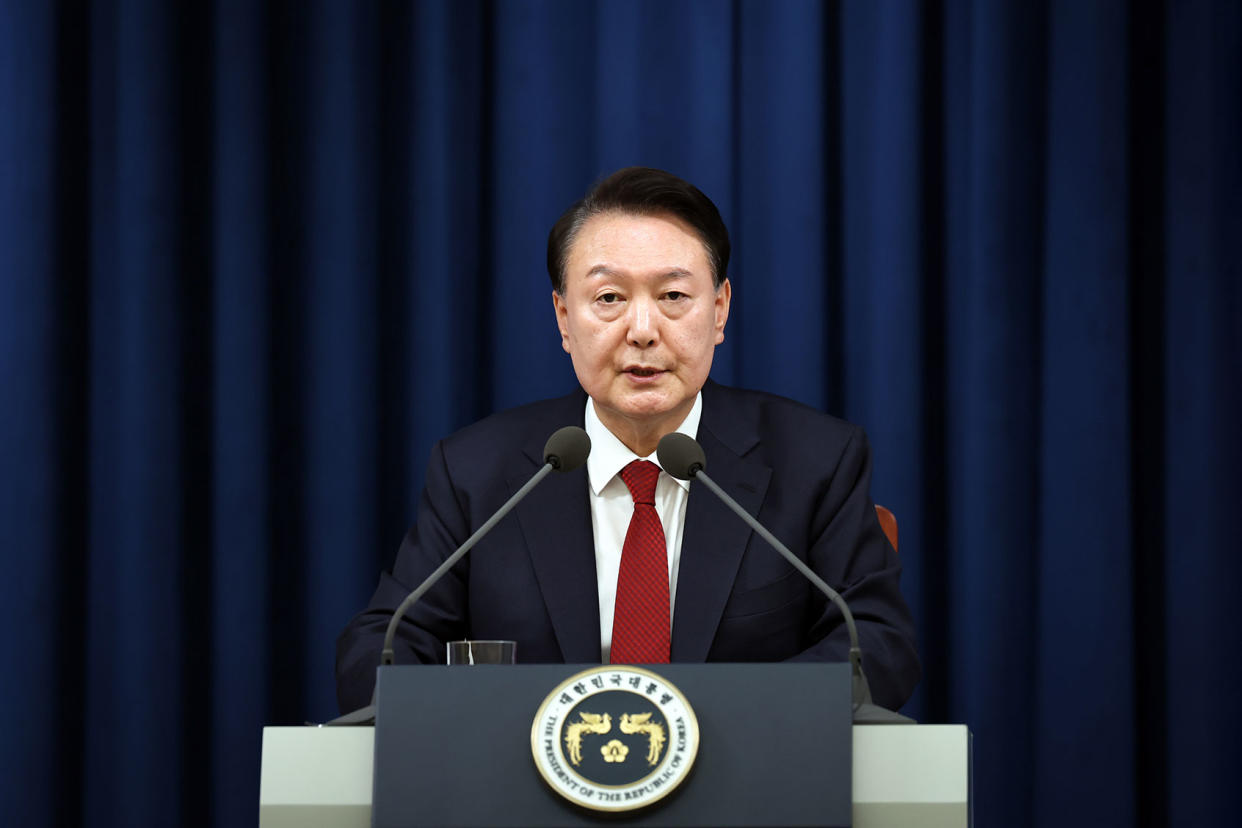In a historic decision, South Korean President Yoon Suk-yeol has declared emergency martial law to protect the nation from what he described as “communist forces” that threaten its stability. This announcement, made late last night, has sparked significant concern both at home and abroad, marking a notable shift in the government’s stance on national security.
The martial law declaration provides the government with enhanced powers, allowing it to deploy military and security forces to maintain order and quickly address any perceived internal threats. In his address to the nation, President Yoon stressed that this measure is essential to safeguard South Korea’s democratic institutions and to prevent the spread of disruptive ideologies that could undermine national unity.
However, critics have raised alarms, questioning the necessity and timing of this action. There are worries about how martial law might affect civil liberties and public freedoms, with human rights organizations urging the government to act with caution. This move comes amid heightened regional tensions, particularly due to North Korea’s recent military activities, which complicate the security situation in the area.
On the international front, reactions to the decision have been mixed. While some allies support South Korea’s efforts to maintain stability, others advocate for dialogue and careful measures to prevent escalating geopolitical tensions. The next few days will be critical in determining how this situation influences domestic politics and South Korea’s foreign relations within a tense East Asian security context.





